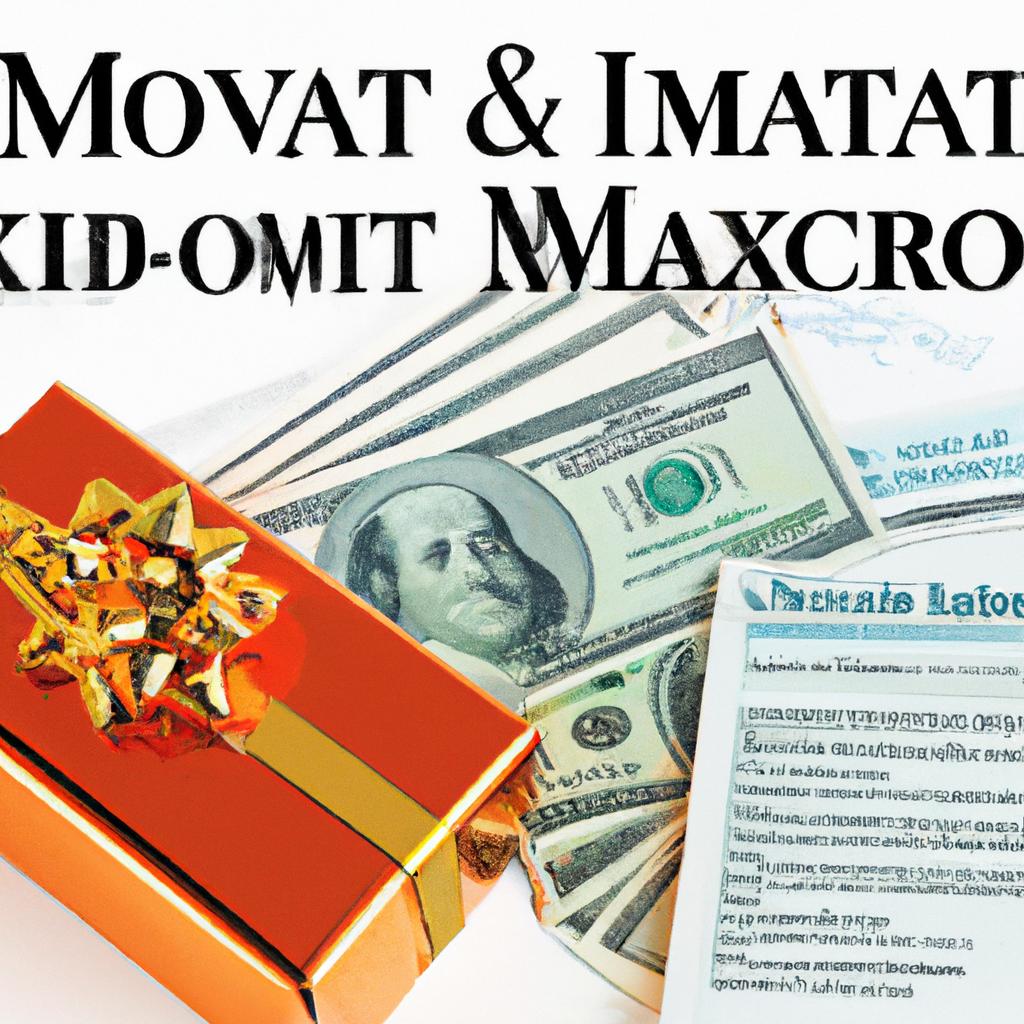In the intricate world of inheritance and taxation, determining the extent of assets that can be passed down from parents to their heirs without triggering a tax liability is a complex endeavor. As seasoned practitioners in the field of estate planning and probate, the team at Morgan Legal Group, based in the bustling metropolis of New York City, navigates these intricate waters with precision and expertise. Join us as we delve into the nuances of inheritance laws and unravel the question: “How much can you inherit from your parents without paying taxes
Understanding Federal Estate Tax Exemptions
When it comes to estate planning, is crucial to ensure that your loved ones receive the maximum amount of inheritance without facing hefty taxes. In simple terms, the federal estate tax exemption determines how much of your estate can be passed on to your heirs tax-free. As of 2021, the federal estate tax exemption is set at $11.7 million per individual, meaning that an individual can inherit up to $11.7 million from their parents without having to pay any federal estate taxes.
It’s important to note that the federal estate tax exemption is subject to change, and it’s essential to stay informed about any updates or modifications to the exemption amount. By working with a knowledgeable estate planning attorney, you can develop a comprehensive estate plan that takes full advantage of the federal estate tax exemptions, ensuring that your assets are protected and your heirs receive the maximum inheritance possible.

Maximizing Lifetime Gift Exemptions for Tax-Free Transfer of Wealth
If you’re wondering how much you can inherit from your parents without paying taxes, understanding lifetime gift exemptions is crucial. By maximizing these exemptions, you can effectively transfer wealth tax-free to your heirs. The current lifetime gift exemption allows individuals to give up to $11.7 million in gifts during their lifetime without incurring gift taxes.
One way to maximize lifetime gift exemptions is by utilizing strategies such as annual exclusions, Spousal Lifetime Access Trusts (SLATs), and Grantor Retained Annuity Trusts (GRATs). These tools can help you transfer assets to your loved ones while minimizing tax implications. By working with experienced estate planning professionals, like Morgan Legal Group in New York City, you can create a comprehensive plan that takes full advantage of lifetime gift exemptions for the tax-free transfer of wealth.

Utilizing Trusts for Tax-Efficient Inheritance Planning
When it comes to tax-efficient inheritance planning, utilizing trusts can be a powerful tool to minimize tax liabilities for your beneficiaries. By setting up a trust, you can control how your assets are distributed after your passing, while also potentially reducing estate taxes. Trusts can help ensure that your loved ones receive the maximum amount of inheritance possible, without unnecessarily paying taxes.
There are various types of trusts that can be used for tax-efficient inheritance planning, such as irrevocable trusts, revocable trusts, and charitable trusts. Each type of trust offers different benefits and considerations, so it’s important to work with an experienced estate planning attorney to determine the best strategy for your specific situation. By carefully structuring your inheritance plan with trusts, you can potentially pass on more of your wealth to your heirs, rather than to the IRS.

Consulting with Estate Planning Attorneys for Personalized Strategies
When it comes to inheriting assets from your parents, there are important considerations to keep in mind, particularly when it comes to taxes. Consulting with estate planning attorneys can help you develop personalized strategies to maximize your inheritance while minimizing tax liabilities.
Here are some key points to consider when determining how much you can inherit from your parents without paying taxes:
- Estate Tax Exemption: In 2021, the federal estate tax exemption is $11.7 million per individual. This means that estates valued at less than $11.7 million will not be subject to federal estate tax.
- Gift Tax Limits: The annual gift tax exclusion allows individuals to gift up to $15,000 per person per year without incurring gift tax. This can be a useful strategy for parents looking to pass down assets tax-efficiently.
Q&A
Q: How much can you inherit from your parents without paying taxes?
A: Good question! In the United States, the federal government allows for a certain amount of inheritance to be passed on tax-free. As of 2021, the current estate tax exemption is $11.7 million per individual or $23.4 million for married couples. This means that as long as the total value of the inheritance is below these amounts, you won’t have to worry about paying any estate taxes.
Q: What happens if the inheritance exceeds the exemption amount?
A: If the total value of the inheritance exceeds the exemption amount, then estate taxes may be owed on the excess amount. The tax rates for estate taxes can be quite high, so it’s important to consult with a tax professional to understand your specific situation and potential tax liabilities.
Q: Are there any ways to reduce or avoid paying estate taxes?
A: Yes, there are several strategies that can help reduce or avoid paying estate taxes. One common method is through gifting assets during your lifetime, as gifts below a certain value are not subject to estate taxes. Trusts and other estate planning tools can also be used to minimize tax liabilities. It’s best to speak with an estate planning attorney or tax advisor to explore all available options.
Q: What about state inheritance taxes?
A: In addition to federal estate taxes, some states also have their own inheritance taxes. These taxes vary by state and may apply to inheritances below the federal exemption amount. It’s important to be aware of the specific laws in your state and how they may impact your inheritance.
Q: Is there anything else to keep in mind when inheriting assets from parents?
A: When it comes to inheriting assets from your parents, it’s important to consider not only the tax implications but also the emotional and practical aspects of managing the inheritance. Open communication with family members, proper estate planning, and seeking professional advice can help ensure a smooth transition of assets and minimize any potential tax burdens.
To Wrap It Up
In conclusion, understanding the intricacies of inheritance tax laws can greatly impact the amount of wealth you are able to pass on to your loved ones. By taking advantage of various exemptions and strategies, you can minimize the amount of taxes owed and ensure that your legacy is passed on intact. Remember, seeking the advice of a financial planner or tax professional can help navigate the complex world of inheritance taxes and maximize the amount you can inherit from your parents. As you plan for the future, be sure to consider the tax implications of your inheritance and make informed decisions to secure the financial well-being of your heirs.

